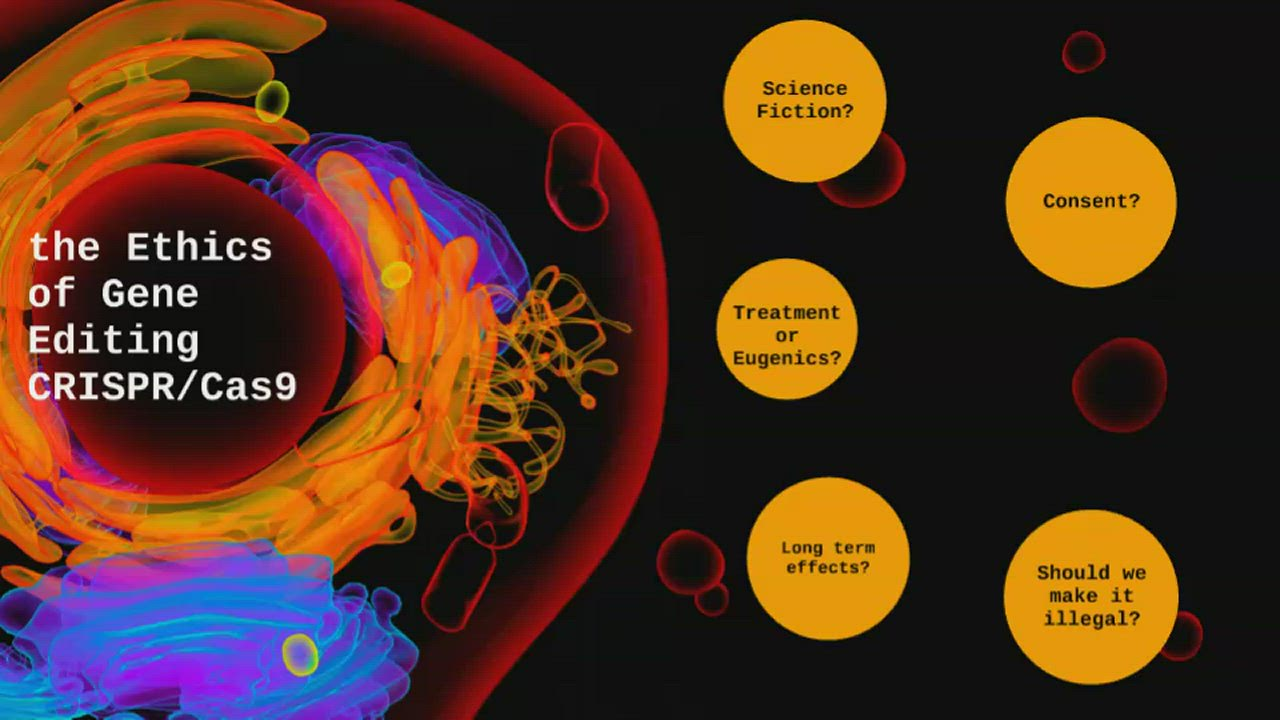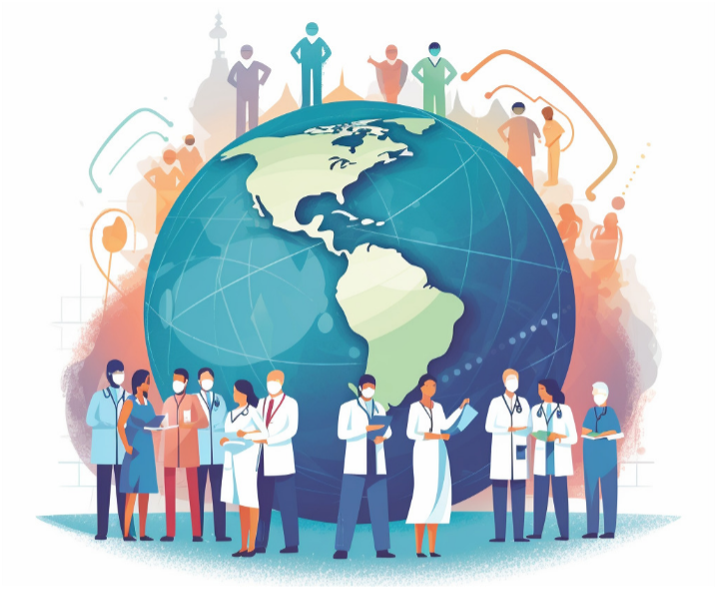Gene editing ethics has emerged as a crucial topic in modern medicine, particularly with advancements in CRISPR technology that allow for precise alterations of our DNA. The potential to cure life-threatening conditions, such as sickle cell anemia, raises ethical dilemmas about who gets to decide which genes to alter and what implications those decisions might have on health equity. As scientists explore the boundaries of gene manipulation, the medical ethics surrounding the accessibility and consequences of these technologies become increasingly pertinent. The intersection of innovation and ethics compels us to question not only the scientific possibilities but the moral responsibilities we bear toward individuals and society at large. By examining these dimensions, we can better navigate the complex landscape of gene editing implications and ensure that advancements contribute positively to the health of all communities.
The ethical considerations surrounding genetic modification involve a myriad of questions that challenge our understanding of health and humanity. The discourse about genetic manipulation, particularly in the context of medical breakthroughs like CRISPR, pushes us to confront the moral dilemmas present in altering human DNA. As we witness the ability to transform the lives of those suffering from genetic disorders, we must ask ourselves about the societal responsibilities tied to such powerful technologies. Alternatives like gene therapy spotlight the balance we must strike between scientific innovation and fairness, considering both the potential benefits and drawbacks. Therefore, discussions of genetic ethics encompass not only medical protocols but also broader socio-economic implications for future generations.
The Ethical Dilemmas of Gene Editing
Gene editing, particularly through advancements in CRISPR technology, has opened new frontiers in treating genetic disorders like sickle cell anemia. However, such revolutionary capabilities come with significant ethical dilemmas. The primary question revolves around the morality of altering human genetics. As Dr. Neal Baer cautions, while the ability to ‘cure’ sickle cell presents an opportunity, it also raises profound ethical concerns. Should we edit genes linked to conditions that do not pose imminent dangers to life, such as Down syndrome, or modify traits based on parental desires? These decisions are not as straightforward as they might appear, as they involve considerations of autonomy, identity, and potential societal consequences.
Balancing the potential benefits against possible moral implications is crucial in the discourse surrounding gene editing. Experts stress the need for guidelines to navigate the complex landscape of medical ethics and gene editing. The fear of eugenics—a movement that once aimed to improve the genetic quality of the human population—lingers heavily in discussions about gene editing. As ethicists like Rebecca Weintraub Brendel argue, without a framework for ethical review and consideration of public health implications, advancements in gene editing could exacerbate health inequities. If only affluent populations have access to these treatments, the divide between ‘have’ and ‘have not’ could dramatically widen.
Health Equity and Access to CRISPR Technology
Health equity poses a significant challenge in the context of CRISPR technology. As highlighted during the Science Center talk, the staggering price of gene treatment for sickle cell—a reported $2.2 million—raises critical questions about who can afford such advancements. This financial barrier could perpetuate existing disparities in healthcare access, especially for marginalized communities that already face significant health challenges. If the potential for curative treatments is limited to wealthier individuals, the promise of science will not fulfill its role in enhancing health for all. The ethical implications of unequal access must be central to discussions about gene editing and its applications.
Furthermore, addressing health equity goes beyond mere accessibility of treatments—it also requires a commitment to public health justice. The repercussions of gene editing extend into societal spheres, where choices about who receives treatment and who is left out can have lasting effects on community health. As the audience heard from Baer, while innovations in gene editing can propel medical advancements, they must be accompanied by conversations about their ethical applications and comprehensive policies that prioritize all patients’ needs. Discussions regarding health equity in gene editing must ensure that all communities benefit fairly from these scientific breakthroughs.
The Consequences of Gene Editing Advances
Exploring the consequences of gene editing using CRISPR technology involves acknowledging both its potentials and pitfalls. While the prospect of eradicating diseases like sickle cell anemia is enticing, the long-term effects of such genetic alterations are still under scrutiny. The intertwining nature of genes means that editing one trait could inadvertently disrupt others, resulting in unforeseen health issues. For example, Baer mentioned recent advancements that lower LDL cholesterol levels could interfere with other biological processes in ways researchers have yet to understand. This illustrates the complex interplay between genetics and health.
Moreover, the focus should be on ensuring that advancements in gene technology consider potential unintended consequences. Each genetic modification brings with it a possibility of creating traits that may not have been intended, altering aspects of human biology that have evolved over millennia. The moral responsibility of scientists and ethicists is to ensure that while we pursue innovative cures, we do so with a comprehensive understanding of the broader implications for human health and the ecosystem. This includes careful monitoring of practices that may deviate from accepted ethical standards, especially in countries with lax regulations.
Who Gets to Decide: The Gatekeepers of Genetics
Another integral aspect of the gene editing discussion is the question of authority—who has the right to make decisions about genetic modifications? As brought forth in the discussions by Baer and Brendel, the implications of gene editing are profound, yet decisions may often rest with a select few. This raises ethical concerns regarding representation and consent, particularly for those communities most affected by genetic diseases. The fear is that ethically questionable practices could emerge from a lack of inclusivity in decision-making about gene modifications, particularly if influenced by societal biases.
Additionally, considering parental rights versus child autonomy introduces another layer of complexity. Ethical principles dictate that while parents may wish to design certain traits into their offspring, the potential for creating social pressure or ethical dilemmas about identity is significant. Decisions regarding gene editing should involve extensive public discourse and input from diverse cultural perspectives to develop a moral framework that respects individual rights and societal values. By engaging various stakeholders, the potential impacts of gene editing can be better understood and fairly addressed.
The Role of Oversight in Gene Editing Innovations
The landscape of gene editing is rapidly evolving, but with innovation comes the urgent need for regulatory oversight. Baer highlighted the risks posed by countries with less stringent controls over genetic engineering practices. Without proper governance, the potential for misuse of CRISPR technology, including unethical experiments or imbalanced access to treatments, becomes a significant concern. Discussions surrounding medical ethics stress the necessity for an international consensus on guidelines for genetic editing to safeguard against exploitation.
Effective oversight not only protects against unethical practices but also promotes public trust in scientific advancements. Transparency in research and ethical review processes is paramount to ensure society feels confident in the scientific community’s commitments to morality and human rights. As technologies progress, continuous dialogue within the realm of medical ethics will be essential to adapt regulations that keep pace with innovation, fostering an environment where the benefits of gene editing can benefit all without compromising ethical standards.
Navigating the Future: Ethical Frameworks for CRISPR Technology
As we contemplate the future of CRISPR technology and its implications, establishing robust ethical frameworks becomes imperative. The conversations initiated by experts like Baer and Brendel highlight the need for collaborative efforts in crafting policies that guide the application of gene editing. Ethical frameworks should encompass not only scientific considerations but also societal impacts, addressing potential inequity in access to these groundbreaking treatments. This will require input from diverse groups, including ethicists, scientists, policymakers, and the communities affected by these technologies.
One proposed approach to developing ethical frameworks involves creating a transparent system that allows public participation in discussions about gene editing’s moral implications. By involving communities in conversations about how genetic interventions may affect their lives and values, a more inclusive approach to ethics can emerge. This promotes not only better acceptance of innovative technologies but also empowers individuals to contribute to shaping the future of medicine and morality surrounding gene editing in a way that aligns with their societal values.
Innovations in CRISPR: A Double-Edged Sword
The introduction of CRISPR technology represents a significant milestone in genetic science, illustrating a double-edged sword’s complexities. While the ability to precisely edit genes holds transformative potential for treating diseases, it also introduces a host of ethical dilemmas. Sickle cell anemia, a hereditary condition leading to severe health issues, is emblematic of the hope and concerns surrounding gene manipulation. The prospect of editing the genes responsible for such diseases raises critical questions about the long-term effects and moral implications of such technology.
The optimism surrounding CRISPR technology must be carefully balanced by awareness of its potential misuses and consequences. Innovations in gene editing, while offering solutions, can also foster fear of genetic discrimination or unintended health consequences. Therefore, the scientific community must ensure that responsible research processes guide gene editing innovations, prioritizing safety, efficacy, and ethical standards to prevent harm while harnessing the benefits of this powerful tool.
Educating the Public on Gene Editing Ethics
An essential step in addressing the ethical concerns surrounding gene editing technology is public education. Individuals must be informed not just about the possibilities of CRISPR but also about the ethical considerations relevant to its use. By creating broad awareness, communities can participate in informed discussions about the implications of gene editing, especially when policies regarding these technologies are being formulated. Comprehensive education initiatives can empower the public to voice their concerns and preferences regarding genetic modifications, ensuring that ethical considerations remain at the forefront of scientific advancement.
Furthermore, educational initiatives should promote a nuanced understanding of both the benefits and risks of genetic engineering. By fostering dialogue through workshops, community forums, and academic discussions, a more informed citizenry can emerge. This approach helps illuminate the complexities of gene editing ethics, including issues of consent, accessibility, and identity, enabling society to engage critically and compassionately with the evolving landscape of gene science.
Frequently Asked Questions
What are the ethical implications of using CRISPR technology for gene editing?
The ethical implications of CRISPR technology in gene editing are vast and complex. They include considerations of consent, especially in germline modifications where future generations may be affected. There’s also the issue of accessibility to these treatments, as high costs may exacerbate health inequities. Moreover, the potential for unintended consequences raises concerns about the long-term effects of altering human genetics, questioning the moral responsibility we have to the next generations.
How does gene editing impact health equity issues?
Gene editing technologies like CRISPR hold the promise of curing genetic diseases, but they also pose significant health equity issues. The high costs associated with procedures such as gene therapy for sickle cell anemia—about $2.2 million—could limit access for many, particularly in marginalized communities. This disparity may deepen existing health inequities, raising ethical concerns about who benefits from advancements in gene editing and whether society prioritizes equal access to these life-changing therapies.
Is it ethical to perform gene editing on embryos to prevent diseases?
The ethics of performing gene editing on embryos to prevent diseases remains deeply controversial. While the potential to eradicate conditions like sickle cell anemia appears beneficial, ethical questions arise regarding parental choice and the societal implications of ‘designer babies.’ Many argue that such decisions should not rest solely with parents, as it impacts not just individual children but the broader human experience, challenging our understanding of diversity and human differences.
What role do medical ethics play in gene editing discussions?
Medical ethics play a crucial role in discussions surrounding gene editing, particularly regarding informed consent, potential harms, and benefits of interventions like CRISPR. Ethical frameworks must guide decisions on gene editing applications, especially in vulnerable populations. Issues like oversight, equitable access to innovation, and the long-term consequences of genetic alterations demand ongoing discourse within the medical ethics community to ensure responsible use of these powerful technologies.
How can we ensure responsible use of CRISPR technology in gene editing?
Ensuring the responsible use of CRISPR technology in gene editing requires robust regulatory frameworks, transparent ethical guidelines, and international cooperation. Stakeholders, including scientists, ethicists, and public health policymakers, must engage in ongoing dialogue about the social implications of gene editing. Establishing oversight mechanisms that monitor ongoing research and applications can help mitigate risks, manage ethical concerns, and promote health equity in access to these treatments.
What are the concerns regarding unintended consequences of gene editing?
Concerns regarding unintended consequences of gene editing stem from the intricate nature of genetic interactions. For instance, while editing genes may target specific traits or diseases, changes like those made to lower LDL cholesterol can have unforeseen effects on multiple biological processes. This complexity highlights the need for cautious, well-researched applications of gene editing, as unforeseen health impacts may arise, challenging our understanding of gene function and interaction over evolutionary time.
What should be considered when discussing medical ethics and gene editing implications?
When discussing medical ethics and gene editing implications, it’s essential to consider justice, consent, and the societal impact of genetic alterations. The potential for gene editing to either alleviate suffering or create harm must be assessed, particularly in vulnerable populations. As we explore the use of technologies like CRISPR for conditions like sickle cell anemia, we must weigh the promise of gene editing against ethical responsibilities, ensuring that decisions reflect fairness and respect for human dignity.
Why is oversight important in gene editing practices?
Oversight in gene editing practices is vital to prevent misuse and ensure ethical standards are upheld. Given the rapid advancement in technologies such as CRISPR, there exists a risk of unethical applications, such as germline editing without proper consent or consideration of social ramifications. Robust oversight mechanisms can help safeguard against abuses, ensure that research adheres to ethical principles, and foster public trust in scientific advancements related to gene editing.
| Key Point | Description |
|---|---|
| Ethical Dilemma | The primary question is whether we should alter human genetic traits that make us unique. |
| CRISPR Technology | CRISPR allows editing both somatic and germline genes, providing potential cures for genetic diseases like sickle cell anemia. |
| Cost and Accessibility | The treatment for sickle cell costs approximately $2.2 million, raising questions about who can afford it and health equity issues. |
| Health Justice | Ethics must be considered alongside innovation; advancements can widen the gap between those who have access and those who do not. |
| Parental Decisions | Debates exist over whether parents should have the right to choose traits or attributes for their children through gene editing. |
| Oversight Issues | Lack of regulation in certain countries raises concerns about cloning and germline editing practices. |
| Unintended Consequences | Gene editing can have complex effects, as genes interact with various biological systems that are not fully understood. |
Summary
Gene editing ethics raises critical questions about the right to change human traits and the possible implications of such changes. As we become capable of potentially erasing diseases, we must also consider the broader ethical landscape, including accessibility, the fairness of treatment options, and the consequences of parental choice in altering future generations. This ethical discourse is essential as we navigate the promising yet perilous terrain of gene editing, particularly with technologies like CRISPR.



